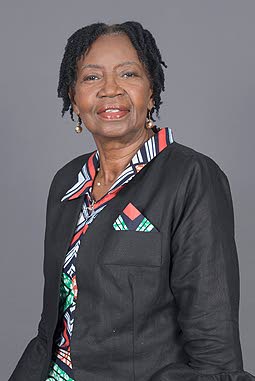The political culture of APT James

Dr Rita Pemberton
APT James is undoubtedly one of Tobago’s most popular politicians. He is revered for his militant interventions to convince the Trinidad-based ruling elites in the Legislative Council of TT to undertake measures – which he suggested – to stimulate the development of Tobago during a very challenging period in its history.
His popularity was based on several factors, all of which point to the operation of a definite political culture that he created. He forged his “Tobagoness” with his wealth and business, trade unionism and its connections, his generosity as an employer, his grassroots nature and philanthropy to cement his role as politician.
He identified himself with every aspect of community life across the island, and his was a household name. He was a feature of village life, for he visited his constituents regularly, hung out with them “under the house,” in the yards, gardens and rumshops, and attended every function, sharing their joys and sorrows in the process.
He served the people of Tobago through several avenues.
In 1946 he formed the Tobago Peasants and Industrial workers Union, and he served as Vice president of the Caribbean Socialist Party. In 1949, he served as chairman of the Tobago County Council, which provided him with a pillar of support, and in that same year he was patron of the Calder Hall Boys Farm.
In 1950 he founded the first Tobago-based political party, the Tobago Citizens Political and Economic Party.
Such was his popularity that he was in demand by all the political parties of the day, since it was felt that once they had James on board, the seat would be sure. From these varied associations, he crafted his “Cabinet” of male and female advisers and established his “men and women of business,” who did the required legwork for building support in every community
At his own cost, he journeyed to England to present a memo to the Colonial Office demanding support from the British government for Tobago’s development from Colonial Development and Welfare grants. This convinced his supporters that he was genuine in his desire for the people to prosper.
James emerged with and functioned within the culture of Tobago, where everyone lived like an extended family.
In keeping with the religious character of the society, James began his political meetings with a prayer, and felt it was his God-given duty to share the bounty he enjoyed in this life with the people of Tobago. As a result, he used his resources to help to alleviate some of the problems his people faced.
In 1958, painfully aware of the difficulties of people in windward parts of the island in gaining access to secondary education, he provided a solution. Children who lived in Windward Tobago who were accepted into Bishop’s High School had to leave home at 4am for the long journey to school, while their parents bore the high cost, which many could not afford.
The alternative was to board the children with friends or relatives in Scarborough for the duration of their schooling, which was also a costly exercise.
James’s solution was to establish a branch of Bishop’s High School in Roxborough and later, another branch, hopefully on land owned by the Anglican church in Delaford, if the demand for school places increased. He got together with a group which included some prominent people in Tobago, county councillors and retired priest the Rev Henson Jacobs.
The Anglican authorities did not support the venture, but James persevered. Jacobs, a practising agriculturist, was asked to be principal, and Victor Wheeler, then working in Trinidad, was invited to serve as the deputy principal.
James decided to finance the school. The space, donated by one of his supporters, was refurbished and furnished by James, who also paid the teachers’ salaries, to allow students to pay a small fee. Not wanting the school mixed up with politics, he never visited it. The school was launched under the name of the James Foundation Secondary and Commercial School.
His political behaviours were well rooted in his attitude to Tobago and Tobagonians. When dealing with his countrymen, he used Tobago codes of conduct to exercise strict rules for behaviour and always to support and respect Tobagonians. These were well demonstrated when the PNM came on the scene and offered the young, educated ANR Robinson as a candidate for the Tobago seat.
James showed his mettle. During the campaign for the 1961 election, he instructed all his platform speakers and his supporters to say nothing that would denigrate a son of the island. There was to be no personal attack on his countryman, even though he was a political opponent.
What emerged was the importance of supporting a man from Tobago and not a party. This was an important aspect of his slogan “Tobago First.”
James did not become embroiled in conflict with his adversaries, to whom he remained respectful, and in fact, he used his influence to facilitate conflict resolution. He fought with and for his people, but his darts were aimed against colonial rule and its associated unacceptable practices of discrimination, exploitation, oppression and dehumanisation.
His was a political culture of respectful and dignified campaigning, with strict adherence to the "protocols" created by the mores of the island’s culture. His campaigns were always “clean,” dealing with issues rather than personal attacks.
He stole from none and shared what he had with all who were in need; there were no limits to his philanthropy. He was a dedicated politician who was honest and straightforward in all his dealings, and he demonstrated to his supporters that he sought their best interest at the political level.
In 1960 he misread the desires of the Tobago population, founded the Tobago Independence Party, lost the election and died shortly after.


Comments
"The political culture of APT James"